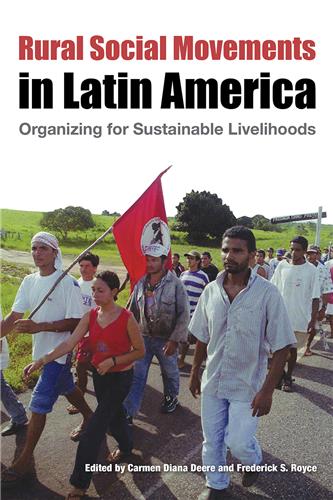Venezuela's Petro-Diplomacy
Hugo Chávez's Foreign Policy
Edited by Ralph S. Clem and Anthony P. Maingot
Foreword by Cristina EguizábalPaper: $19.95
"Because Chavez is breaking all of the rules, we are all struggling to be better informed about what he is up to and how to interpret his actions at home and abroad. Each of the essays sheds important new light on Chavez and his activities in the Americas and beyond."--Terry L. McCoy, University of Florida
"This is the first academic endeavor to research and understand the complex web of Venezuela’s recent mono-industrial over-dependence on oil/petroleum to the detriment and neglect of other export industries developed in the 1970s, and its implications for foreign policy and hemispheric relations."--David E. Lewis, former assistant secretary of state for Caribbean development, Commonwealth of Puerto Rico
Since coming to power in 1999, President Hugo Chavez has used the windfall of high oil prices to remake Venezuela internally along the model of twenty-first-century socialism and, even more audaciously, to rewrite global relations by directly challenging U.S. hegemony. The dramatic ascendency of the country in hemispheric and global international relations over the past decade is the subject of Venezuela’s Petro-Diplomacy.
The contributors offer fresh, authoritative insights into a wide array of questions hanging over Venezuelan foreign policy and the leadership of the maverick president, Chavez. While revenue from petroleum exports has swelled national coffers and allowed the expansion of public programs and the extension of aid to foreign countries, bolstering Chavez’s popularity at home and abroad, the volatility of petroleum prices and the neglect of other export industries have the potential to render Chavez’s--and Venezuela’s--power tenuous.
Ralph S. Clem is emeritus professor of geography and international relations at Florida International University. Anthony P. Maingot is professor emeritus of sociology and anthropology at Florida International University.
"This is the first academic endeavor to research and understand the complex web of Venezuela’s recent mono-industrial over-dependence on oil/petroleum to the detriment and neglect of other export industries developed in the 1970s, and its implications for foreign policy and hemispheric relations."--David E. Lewis, former assistant secretary of state for Caribbean development, Commonwealth of Puerto Rico
Since coming to power in 1999, President Hugo Chavez has used the windfall of high oil prices to remake Venezuela internally along the model of twenty-first-century socialism and, even more audaciously, to rewrite global relations by directly challenging U.S. hegemony. The dramatic ascendency of the country in hemispheric and global international relations over the past decade is the subject of Venezuela’s Petro-Diplomacy.
The contributors offer fresh, authoritative insights into a wide array of questions hanging over Venezuelan foreign policy and the leadership of the maverick president, Chavez. While revenue from petroleum exports has swelled national coffers and allowed the expansion of public programs and the extension of aid to foreign countries, bolstering Chavez’s popularity at home and abroad, the volatility of petroleum prices and the neglect of other export industries have the potential to render Chavez’s--and Venezuela’s--power tenuous.
Ralph S. Clem is emeritus professor of geography and international relations at Florida International University. Anthony P. Maingot is professor emeritus of sociology and anthropology at Florida International University.
- Sample Chapter(s):
- Excerpt
- Table of Contents
"Demonstrates the broad reach of Venezuela's foreign policy and the considerable interest it has generated, as well as its impact on diverse sectors in Venezuela and elsewhere."
--Journal of Latin American Studies
Latin American specialists will want to add it to their collection as will students of comparative foreign policies. International relations scholars, especially those interested in resource issues, will find useful material and sources here for their own research.
--International Social Science Review, Vol. 87, No. 1-2












